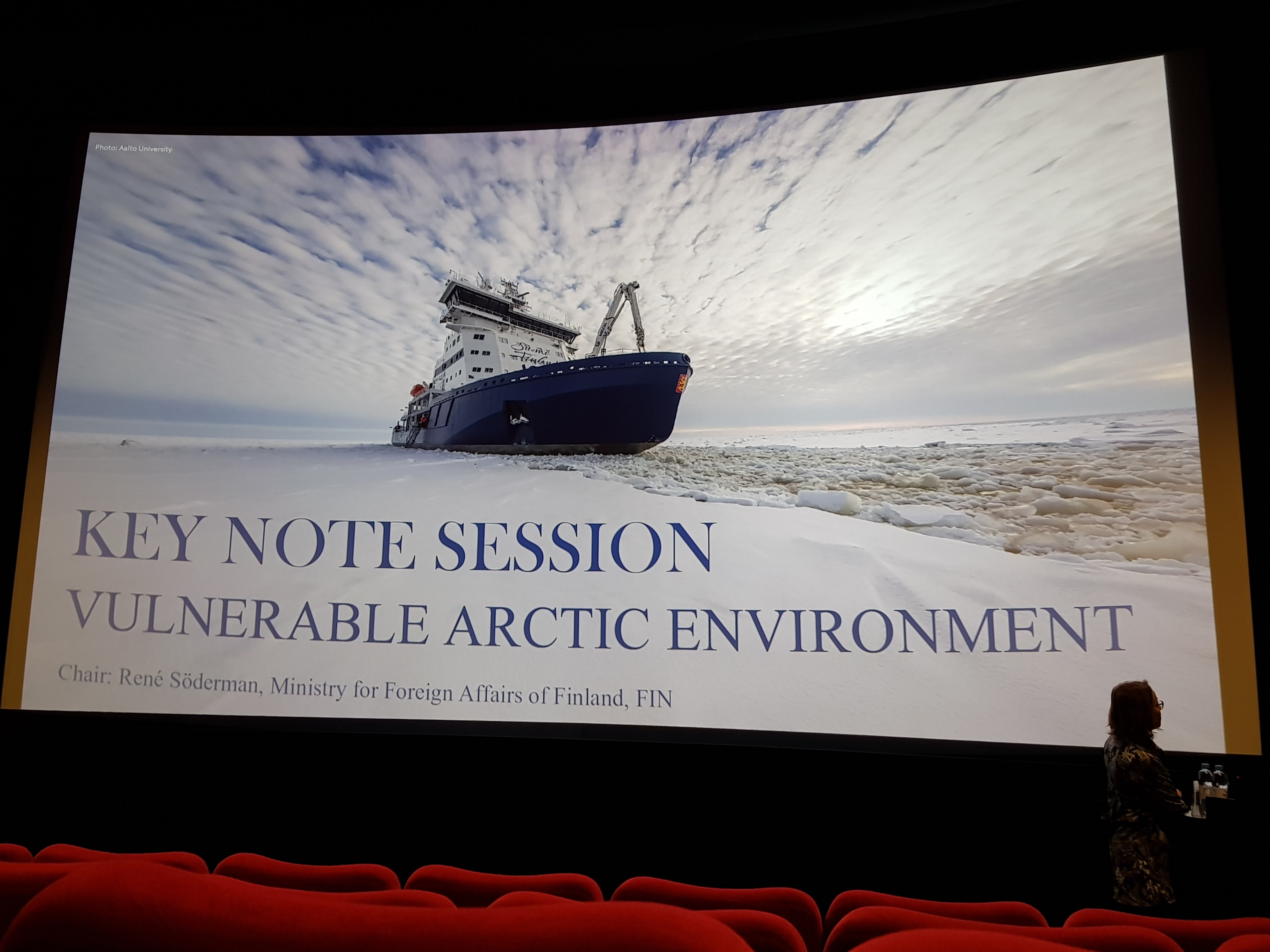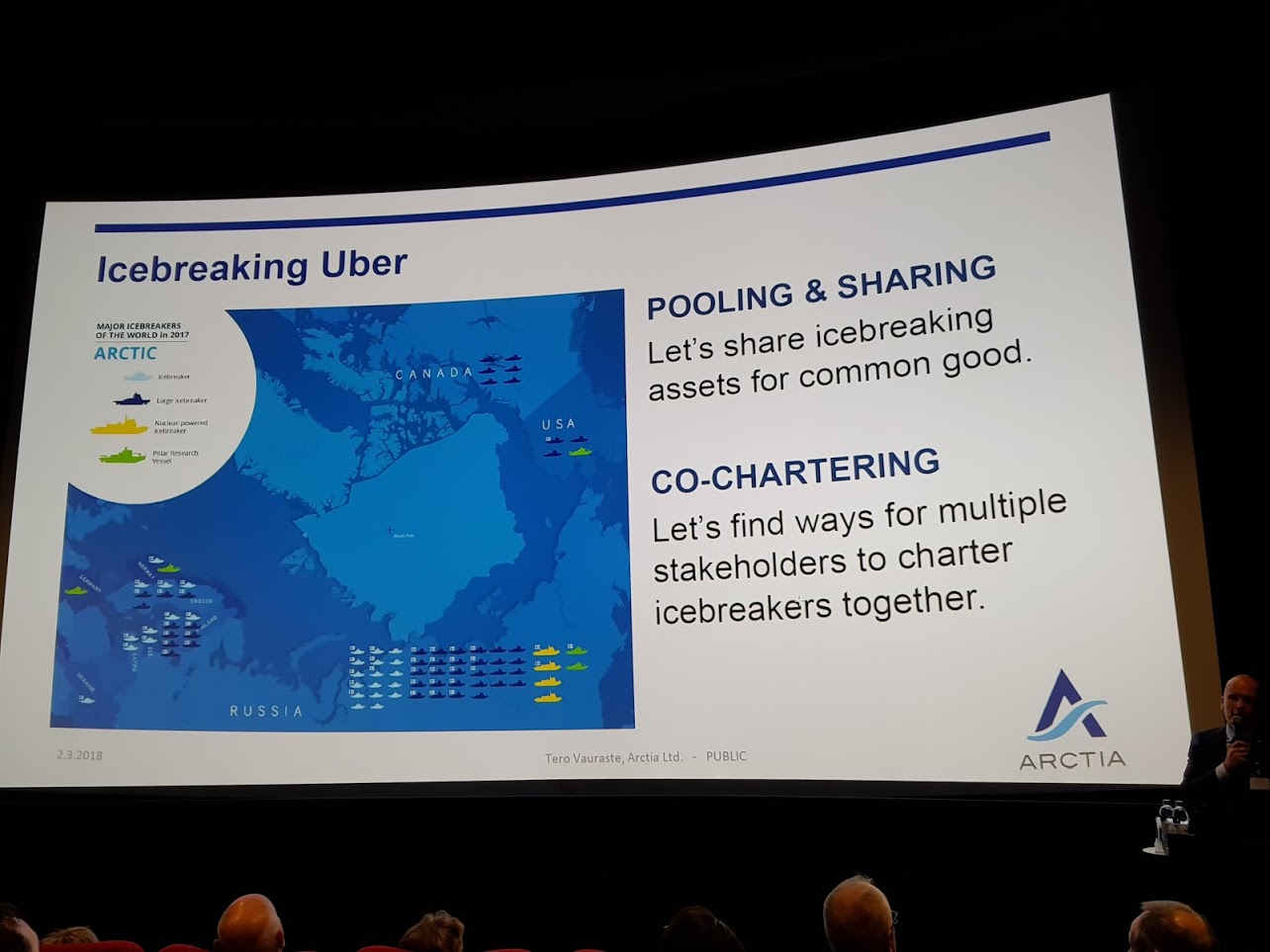
As part of OSRL's Subject Matter Experts programme, we have core groups; one of these is specialised in cold weather and it's important to keep up with the industries thinking, saying and doing on this subject matter. Bjornar Fonn, representative for the Cold Weather core group talks to us about the conference and findings.
The Finnish Environment Institute (SYKE) held their second large "Oil Spills in Arctic Areas Conference" this April and this is the place to be if response and preparedness in arctic areas is your thing. Myself (Bjørnar Fonn) and Jamie Anderson, also representing the core group. Its exactly our kind of thing!
The conference and exercise is presented under the title MOSPA which stands for Marine Oil Pollution Preparedness and Response in the Arctic. The conference gives the opportunity for collaboration between industries and organisations. It also facilitates a large and diverse group of speakers, topics and guests, inviting discussions regarding exercises, platforms and information sharing within the industry.

Above image: How Fleetrange's maritime application optimises the use of cloud based sharing.
To start the conference is a table top exercise, which tests the communication between agencies and 3rd party contractors and to capture some of the lessons identified. Many of the session speakers then continue to use the exercise in their presentations.
Now, it’s interesting to compare notes from the 2015 exercise. As the intergovernmental challenges often are the same, communication and sharing of information are lessons identified from both these large-scale exercises.
It is also motivating to see companies moving towards cloud based working environments, this is a potential solution for a common operating picture. Cloud based sharing and communication would allow for multiple participants to use the system simultaniously, however it must be capable of easy text based communication sharing.
the challenges that could be faced are; some agencies will simply block all external communication with email attachments and data transfer to and from vessels in remote areas on very limited bandwidth also presents a challenge. The table top exercise was a success though and provided a focus and good insight.

Image above: ARCTIA - showing the Arctic's vessel pool and wondering if this can’t be utilised better
In 2015 I participated in the ice-breakers exercise, so I opted for the conference exercise this time and Jamie followed the group into Bothnia bay. The response method was mechanical recovery using vessel mounted brush skimmers that can be individually positioned in the broken ice. One interesting observation both from 2015 and this year's exercise is how quickly the ice froze back together behind the vessel, this causes a problem for the brushes as they lack the robustness to break up ice.
Lamor has designed an improved version of this skimmer (Sternmax) that has a built-in cage to protect and re-enforce. It also comes equipped with a heating system which will warm up the brush and cage assembly. Having these features means it can crush up to 1m of ice allowing the brush to reach oil without any other assistance. Read more about the Sternmax.
This exercise was a good demonstration on how the communication platform can be utilised between vessels and other resources. This Fleetrange was used to connect the exercise together. Download Oil Spill Response's Guide to the exercise.

Image above: Drawing our attention to the real reason for being here, the vulnerable arctic environment
The conference section always brings a diversity of speakers and topics and its directed towards different audiences. Rebecca Pincus from the U.S. Coast Guard Academy captured both our interests with her talk on Search and Rescue (SAR) in the Arctic areas. Speakers from various Universities, Red Cross and the Coast Guard all presented a very important subject; Preparedness and Capability to respond to incidents in arctic areas. Both Red Cross and the Coast Guard have carried out extensive training and exercises in arctic areas. Lessons identified here were again better communication and cooperation between organisations and agencies is needed.
Dr. Paivi Mattila, Senior Research Manager from Laurea University of Applied Science in Finland presented the evaluation of the joint Search and Rescue simulator exercise that formed part of the larger table top exercise and presented some interesting points.
The given scenario could not be fully played out due to time restrictions, there were some missed opportunities for cooperation by participants. A lot of time was spent figuring out the technical challenges, vessel and navigation details. By the time good synergies started to happen, the "end-ex" was called. A well-planned time step could be a solution to this and this is an easy trap to end up in, especially for the Arctic exercises and a well-planned time step could be a solution. Equipment and response methods can take presidency quickly and Search and Rescue becomes second or even third objective. The (un-reliable) and potential recovery rates and equipment features take up most of the conversation, less time is spent with SAR and wildlife response.
Jamie and I had some interesting discussions with wildlife experts and key contacts within SAR as this is a crucial factor in the overall preparedness and response. The opportunity to include this in a future exercise or training course is important.

Image above: Formal dinner hosted by the city of Oulu in the 135-year-old City Hall
Thanks to the city of Oulu, Finnish Environment Institute (SYKE) for a great exercise and conference.
We will make sure this benefits not only the cold SME group but OSRLs own preparedness and its members as we become more aware and keep evolving.
If you would like to know more about the Working Groups or the ongoing work in arctic areas, please visit Arctic Council Website to find out more.
Some other interesting projects and resources;
Grace Oil Project
Arctic Coast Guard Forum




